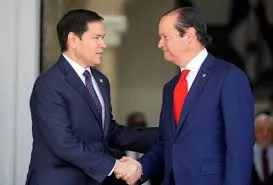Houseofbeautysalons – Senator Marco Rubio has raised concerns over China’s influence on the Panama Canal, calling for Panama to reduce Beijing’s growing control over this critical trade route. He argues that China’s expanding presence in the region poses economic and strategic risks to the U.S. and its allies.
China’s Expanding Role in the Panama Canal
Over the past decade, China has significantly increased its investments in Panama, particularly in infrastructure projects related to the canal. Chinese companies have secured contracts for ports, logistics hubs, and telecommunications, giving them substantial leverage over one of the world’s most important trade passages.
Rubio warns that this growing presence allows Beijing to exert geopolitical pressure, potentially affecting global shipping routes. He insists that Panama must take steps to limit China’s control to ensure the canal remains neutral and free from external political influence.
U.S. Concerns Over Strategic Influence
The U.S. has historically played a major role in overseeing the Panama Canal, even after its transfer to Panama in 1999. However, with China’s expanding investments, Washington fears that Beijing could leverage its influence to disrupt trade or gain an advantage in global commerce.
Rubio has urged U.S. officials to strengthen ties with Panama and offer alternatives to Chinese investment. He believes that by providing economic incentives and security cooperation, the U.S. can counter China’s deepening foothold in the region.
What’s Next for U.S.-Panama Relations?
As tensions between the U.S. and China escalate, the Panama Canal remains a focal point of geopolitical competition. Rubio’s call to action highlights Washington’s growing unease over China’s strategic ambitions. Whether Panama will respond to U.S. concerns or continue welcoming Chinese investments remains to be seen.
One thing is clear—control over the Panama Canal is more than just an economic issue; it is a key battleground in the global power struggle between the U.S. and China.

